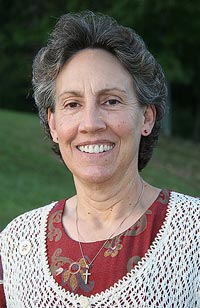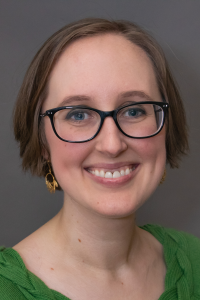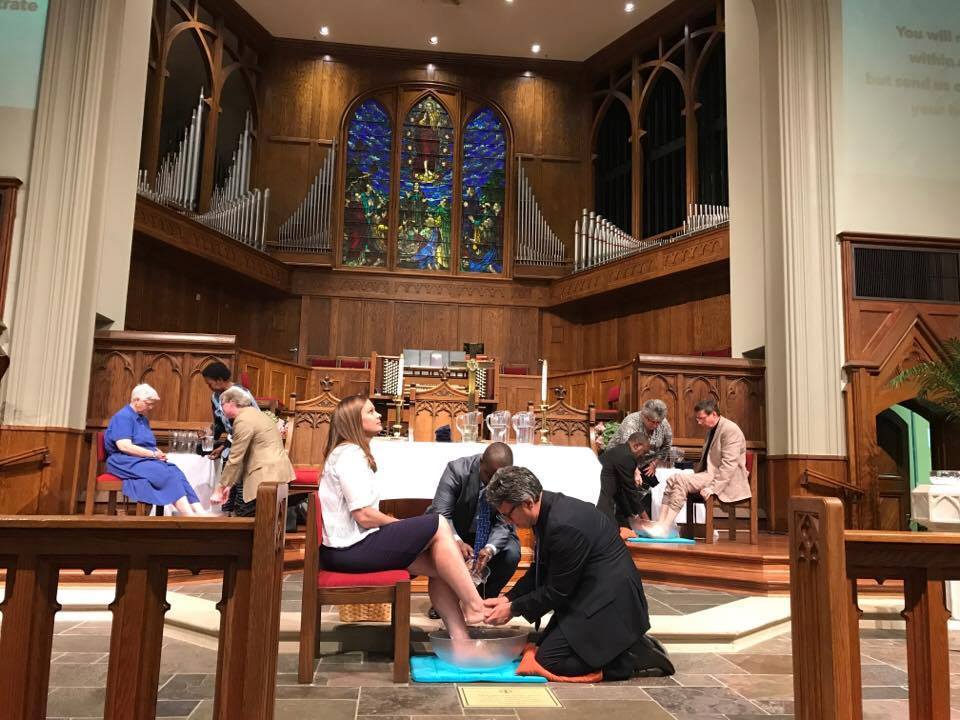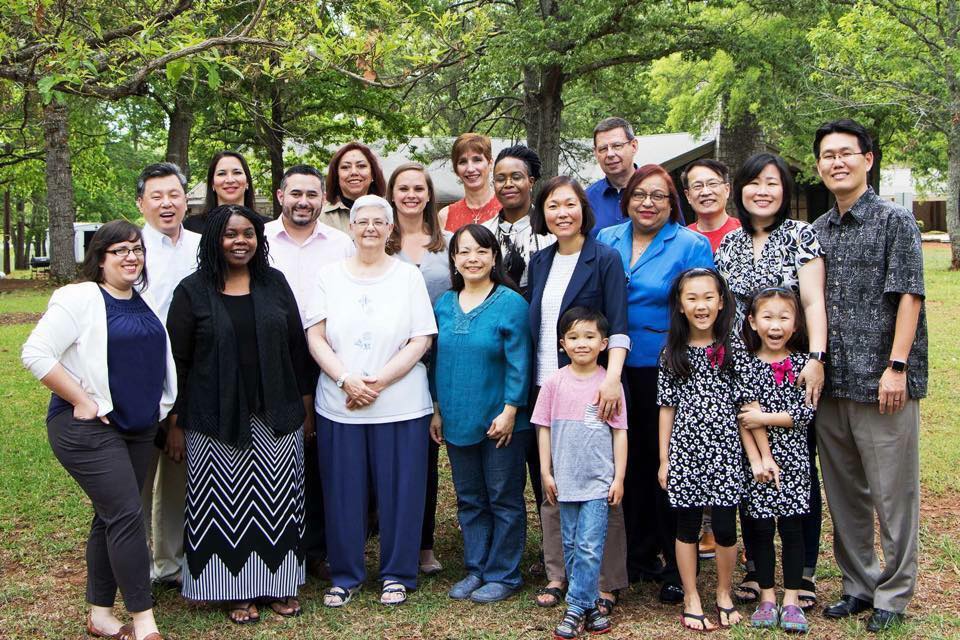
Church and Community Workers are commissioned missionaries of the General Board of Global Ministries of The United Methodist Church, who, in response to God’s call, are devoted to uplifting the poor and disenfranchised in rural and urban areas throughout the United States.
Church and Community Workers work to change the social inequities of poverty, racial injustice, and domestic violence. As their name implies, they take the church into the community and bring the community into the church.
The West Virginia Conference of The United Methodist Church has been blessed by Church and Community Ministry for over 130 years, at times with over 100 Church and Community Workers serving within the boundaries of the West Virginia Conference. The West Virginia Conference is committed to and looks forward to the placing of four church and community workers within the conference in the next year.
Gayle Lesure (retired)

Rev. Anna Troy
Open Heart Ministries of Harrison County, Clarksburg, WV


A blessing service, including foot washing, being held for newly commissioned Church and Community Workers.
How beautiful upon the mountains
are the feet of the messenger who announces peace,
who brings good news,
who announces salvation,
who says to Zion, ‘Your God reigns.
Isaiah 52.2-12 (NRSV)
After months of discernment as individuals with our church communities, after an extensive application process and seemingly endless rounds of interviews with Global Ministries personnel, after physical and mental health examinations, after site visits and more interviews, and after three weeks of intensive training, seventeen of us received the blessing of your Global Ministries team at a blessing service on May 8. It took place in the stunning sanctuary of Grace UMC in Atlanta, which is sharing office and worship space with Global Ministries after Global Ministries moved its headquarters from New York to Atlanta.
The service featured the washing of the feet of the missionaries by Global Ministries staffers and by four bishops from the Democratic Republic of the Congo! Their presence was a visible reminder of the global reach of our missions agency, whose purpose is to send missionaries “from everywhere to everywhere.” No longer is the United States the only sending nation; your United Methodist Church is recruiting missionaries from many places worldwide, and is sending them all over the world!
The litany recited by those of us being blessed included the words, “We dared to give our hearts to perfect love. God listened to our prayer, and brought us to this moment of blessing, possibility, and joy.” For those of us who have long sought to serve as missionaries representing Jesus Christ and the church we love, this was the culmination of many months in which we, with fear and trembling, dared to ask God to be commissioned by Christ and His church to serve as missionaries!
Missionary service is both a joyful and an awesome undertaking. As we serve, we pray to remember always our task, no matter what our unique job descriptions may say. We are to announce and embody peace, and to bring the good news of salvation to all we encounter. This service was indeed a blessed moment, for which we are so very grateful to God and to our church!

This is the whole group of us, pictured on the third day of training. It is amazing to realize how much better we know each other now. Some very close and no doubt lifelong friendships have been formed, which makes glad the heart of God!
I am so very happy to be back in West Virginia after a very intensive three-week training period outside of Atlanta, GA. The training was very valuable; I am truly grateful to have received such excellent teaching during the training. Much to my delight, much of the material we covered deals with precisely the new approach to mission about which I have already been writing and speaking during my time among you!
Some of the most valuable education I received involved communication styles and conflict transformation. It was amazing to me how potentially difficult situations can quickly be resolved if we understand each other’s style of communication, and if we take the time to really, truly listen to one another. This is harder to do than it might sound, but it is absolutely worth the effort! Without such efforts, situations can quickly escalate, relationships can be damaged, and ministry can be impaired, all of which surely break God’s heart. I will be reviewing all of this material carefully to incorporate it into my work. It was also helpful to know that conflict is an inevitable part of ministry, as in life, and if properly dealt with, can be a tremendous source of learning and growth.
The theology of mission took up a good deal of our time. The United Methodist Church has been engaged in some serious thinking about how we approach mission. We all know that when people are in crisis, they simply need food, clothing, shelter, medical and legal services, and other assistance–right then and there. None of us providing these life-saving services in such situations would think of asking anything in return; we offer ourselves and our efforts as a natural part of our discipleship. The real issues arise when people are past the immediate crisis, yet we continue to offer goods and services without creating a partnership between us and those with whom we minister. This approach to mission creates dependency; it can do violence to the dignity with which God has endowed each individual. Many of you have already heard me speak of this as I have traveled around the Southern District.
This new approach to mission is the “50/50” rule. Whenever we enter into mission, we will work as 50/50 partners with the people on the ground, realizing that they are the experts in their own lives and that they already know much of what needs to be done. This is not to say that a different perspective, an outside ear/eye/voice, cannot be valuable. Indeed, sometimes someone from a different place can see things invisible to those who have lived for years in the communities to which we missionaries are sent. But what this approach does mean is that we will not dictate to local communities what must be done and how it must be done. We will be PARTNERS WITH those in the various places to which we are sent by God and by the United Methodist Church. We will work WITH them, and together, we will discern God’s vision for their home. This way of being in ministry WITH people honors the skills, wisdom, and expertise of our partners, and recognizes that we missionaries do not bring God to the people; God has already been there for a very long time.
We were given some practical tools with which to carry out our 50/50 approach. We spoke of discerning not just the needs of the people in an area, for the people beloved of God are always more than their needs. They also have skills and assets that can be used to further God’s kingdom. We spoke of ways of discovering those skills and of how to put them to work in communities. We learned about different ways of gathering community members for discussions and development of action plans. This was very exciting to me; it equips me to better work with all of you to bring God’s healing to our communities.
The most critical piece was the regular spiritual formation sessions, focusing on John 15. Jesus is indeed the vine, and we are but branches. I intend to abide in Jesus, so that he will abide in me. Only if I am true to this pattern can I be the loving and able disciple and missionary you have so graciously invited to the southern coalfields. Then together, as we abide in Christ, we can make glad the heart of God as our communities are transformed into places of shalom for all of God’s beloved.